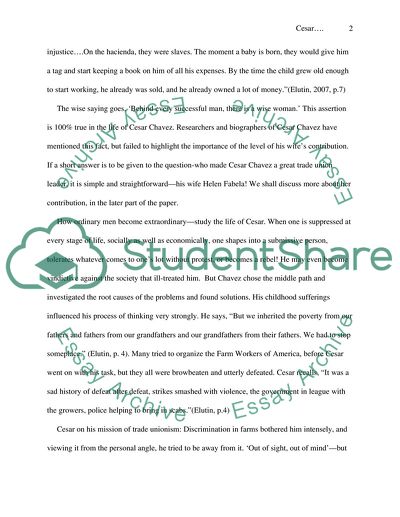Cite this document
(Cesar Chavez and the United Farm Workers Union Research Paper, n.d.)
Cesar Chavez and the United Farm Workers Union Research Paper. Retrieved from https://studentshare.org/history/1724473-cesar-chavez-and-the-united-farm-workers-union
Cesar Chavez and the United Farm Workers Union Research Paper. Retrieved from https://studentshare.org/history/1724473-cesar-chavez-and-the-united-farm-workers-union
(Cesar Chavez and the United Farm Workers Union Research Paper)
Cesar Chavez and the United Farm Workers Union Research Paper. https://studentshare.org/history/1724473-cesar-chavez-and-the-united-farm-workers-union.
Cesar Chavez and the United Farm Workers Union Research Paper. https://studentshare.org/history/1724473-cesar-chavez-and-the-united-farm-workers-union.
“Cesar Chavez and the United Farm Workers Union Research Paper”, n.d. https://studentshare.org/history/1724473-cesar-chavez-and-the-united-farm-workers-union.


